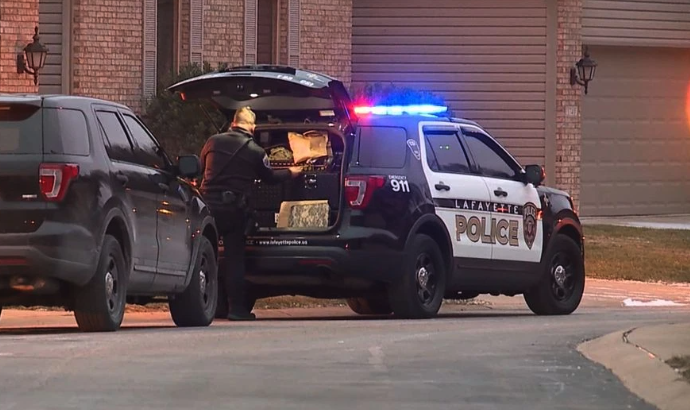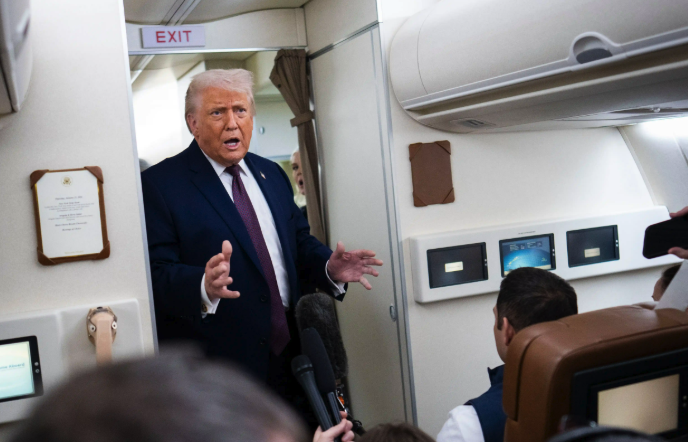A federal judge on Monday issued an order blocking the Trump administration from revoking legal status and work permits for more than 530,000 migrants from Cuba, Haiti, Nicaragua, and Venezuela who entered the United States during former President Joe Biden’s administration. The decision temporarily halts the termination of status for migrants admitted under the CHNV humanitarian parole program, pending further judicial review.
U.S. District Judge Indira Talwani, who President Obama appointed, ruled that the government cannot revoke parole and associated work authorizations without conducting individualized, case-by-case evaluations. The court’s decision comes in response to the Trump administration’s March 25 announcement that it would terminate the CHNV parole program and rescind the parole status of migrants admitted under it. The program had provided temporary authorization for migrants to live and work in the United States for up to two years.
“The Termination of Parole Processes for Cubans, Haitians, Nicaraguans, and Venezuelans, 90 Fed. Reg. 13611 (Mar. 25, 2025), is hereby STAYED pending further court order,” Judge Talwani wrote, “insofar as it revokes, without case-by-case review, the previously granted parole and work authorization issued to noncitizens paroled into the United States pursuant to parole programs for noncitizens from Cuba, Haiti, Nicaragua, and Venezuela… prior to the noncitizen’s originally stated parole end date.”
EXC: Obama appointed Judge Indira Talwani BLOCKED Trump’s plan to revoke legal status of over 500,000 migrants who Biden flew into our country.
Her brother has worked with the @ACLU, which supports this pro-immigration agenda.
Conflict of interest. pic.twitter.com/c8heMD2C7a
— Natalie Winters (@nataliegwinters) April 15, 2025
The Biden administration implemented the CHNV parole program through executive authority in 2023, expanding on a 2022 initiative that initially applied to Venezuelan nationals. The policy aimed to offer a legal pathway for nationals from countries experiencing humanitarian crises while also easing pressure at the U.S.-Mexico border. Migrants and their families were eligible to fly into the U.S. if they had American sponsors who would provide support.
The Department of Homeland Security (DHS) previously stated the program was designed to facilitate legal entry, increase national security vetting capacity, and reduce irregular migration. However, the program faced scrutiny after being temporarily paused due to reported cases of fraud. Additionally, a number of migrants admitted under the program were later implicated in serious crimes, including multiple child rape cases, which fueled criticism from immigration policy opponents.
On March 25, the Trump administration published a notice indicating that the migrants covered by CHNV would be required to leave the country by April 24, 2025, unless they obtained another form of legal status. The administration asserted that it had the authority to reverse the program using the same executive powers previously exercised by President Biden to establish it.
Obama-appointed U.S. District Judge Indira Talwani has singlehandedly chosen to keep 500,000 migrants in the United States, from her bench in Massachusetts.
This is a problem. pic.twitter.com/4RnIydMJOQ
— Eric Daugherty (@EricLDaugh) April 13, 2025
Following Judge Talwani’s order, those efforts have been placed on hold. The court has not yet made a final ruling on the legality of revoking the parole en masse, but the stay ensures that, for now, migrants covered under the CHNV program will retain their current legal protections and work authorization until the case proceeds further.
As of this writing, the White House has not provided an official comment in response to the ruling. Federal agencies involved in the enforcement and implementation of immigration policy are expected to await further guidance from the court regarding next steps.




